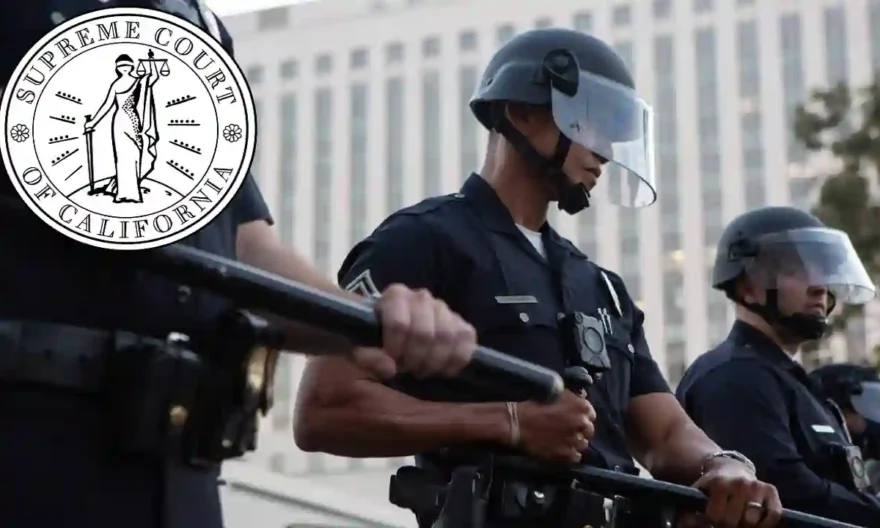
The California Supreme Court in a recent ruling overturned a longstanding precedent set by lower courts, that granted immunity to police officers from civil lawsuits for misconduct that occurred during criminal investigations.
The justices unanimously rejected the argument put forth by Riverside County, stating that its sheriff’s deputies could be held accountable for leaving a deceased man’s naked body exposed for eight hours while investigating his killing.
Previously, California law shielded police officers from lawsuits related to any harm caused during the prosecution process, even if the officer’s actions were “malicious and without probable cause”. However, the Supreme Court’s decision now allows individuals to file lawsuits against law enforcement for misconduct occurring during investigations.
The ruling referred to previous case law, which distinguished investigatory actions from those taken after charges have been filed. Justice Leondra Kruger, in the court’s opinion, stated, “The potential for factual overlap between investigations and prosecutions does not justify treating them as one and the same.”
Kruger acknowledged that the California Supreme Court had previously issued a similar ruling in 1974. However, in 1994, a state appeals court adopted a broader interpretation that provided greater protection to law enforcement officers, shielding them from lawsuits arising from their conduct during investigations. Lower courts have relied on this interpretation to dismiss misconduct lawsuits against the police, even if they did not involve actual prosecutions.
The lawyer representing Riverside County in this case did not provide an immediate comment in response to the ruling.
The specific case revolved around Jose Leon, who was fatally shot by a neighbor in 2017 in Riverside County, southeast of Los Angeles. After sheriff’s deputies arrived at the scene of the shooting, they heard gunshots nearby and moved Leon’s body behind a police vehicle, causing his pants to fall down and exposing his genitals, according to the lawsuit. Leon’s wife, Dora Leon, filed a lawsuit against the county, alleging negligence and emotional distress, claiming that the police had left her husband’s naked body visible for hours. The case was initially dismissed by lower courts, citing the immunity provided by state law to law enforcement officers and agencies for their conduct during investigations.
The California Supreme Court overturned the dismissal and reinstated Dora Leon’s lawsuit. Kruger stated that the lower courts’ decision was incorrect, emphasizing that police investigations should not be considered part of the prosecution process.
Richard Antognini, the attorney representing Leon, stated that many local police departments have routinely argued for immunity from damage claims “the moment a police officer arrives on the scene of a crime.”
If the Supreme Court had sided with the county, “it would have essentially immunized them for almost anything”, shielding them from liability for a wide range of actions, according to Antognini.
The recent ruling is seen as a step towards addressing barriers faced by victims seeking compensation for police misconduct, although certain aspects of police investigations in California still enjoy immunity under existing laws.
John Burris, a civil rights attorney in California who has represented over 1,000 victims of police misconduct nationwide, commended the ruling. He believes “This should have a positive impact on police reform, because now the law has spoken”. Burris also emphasized, “Police should be trained and be better informed as to what their obligations are.”




